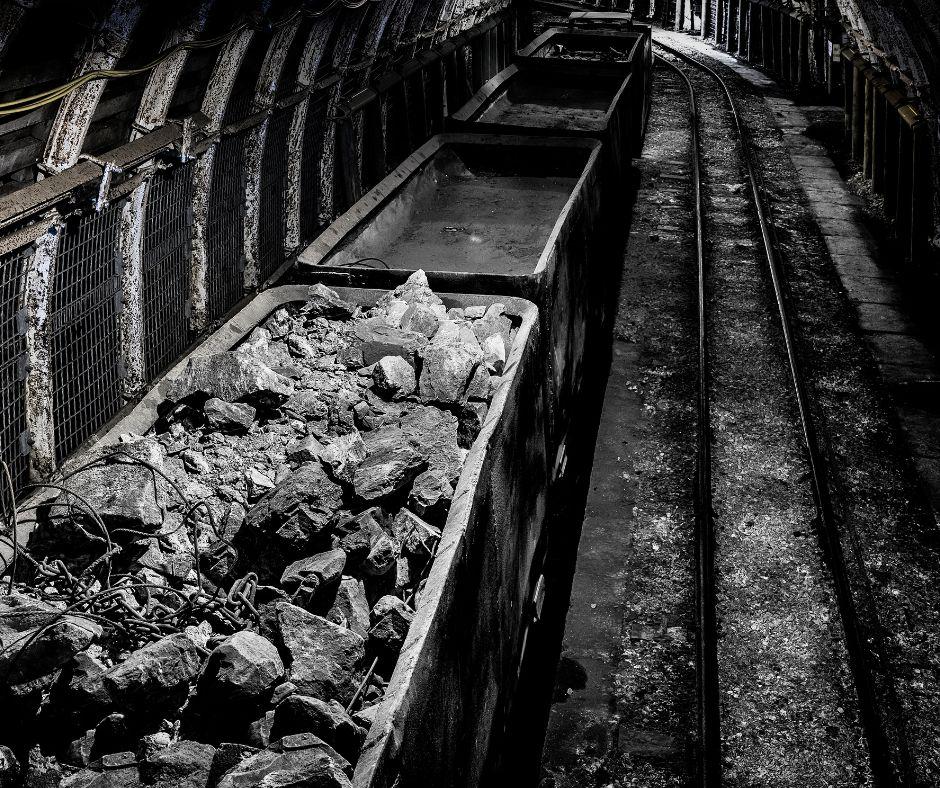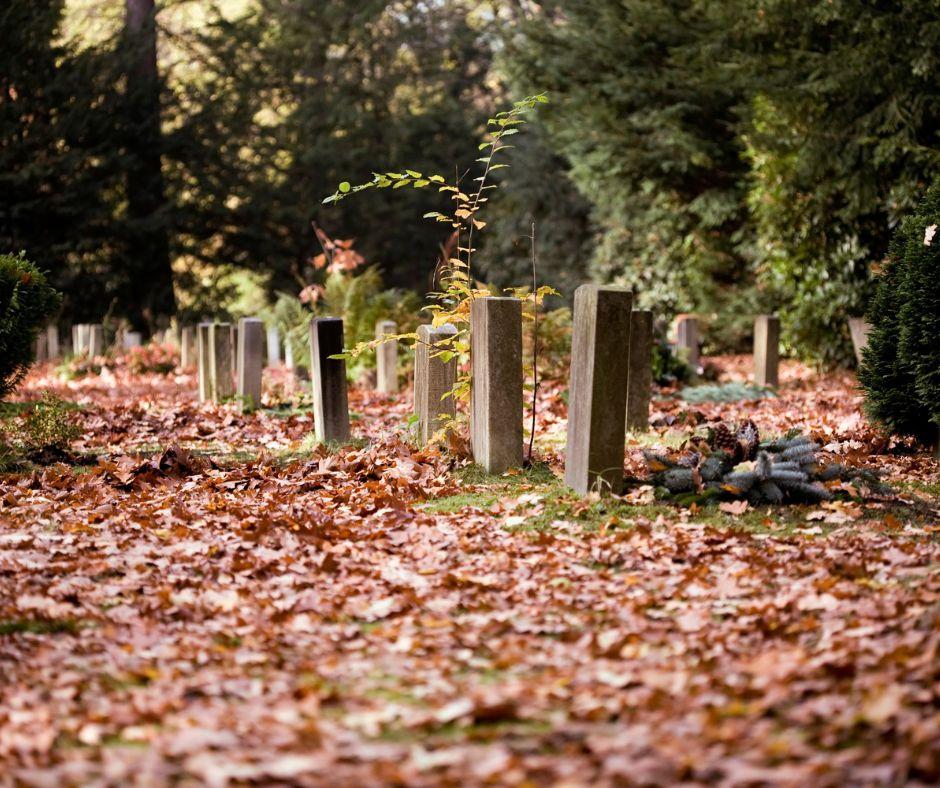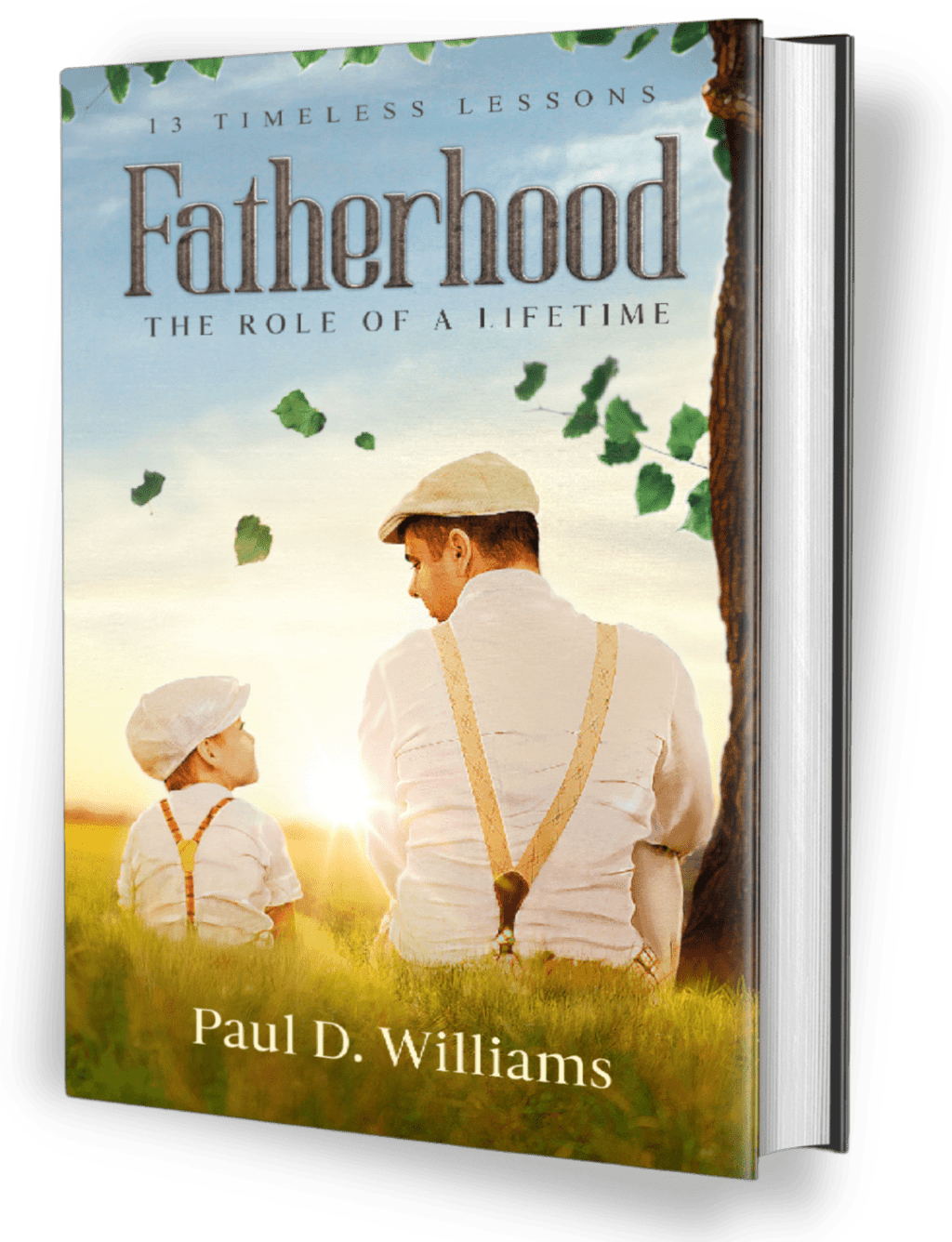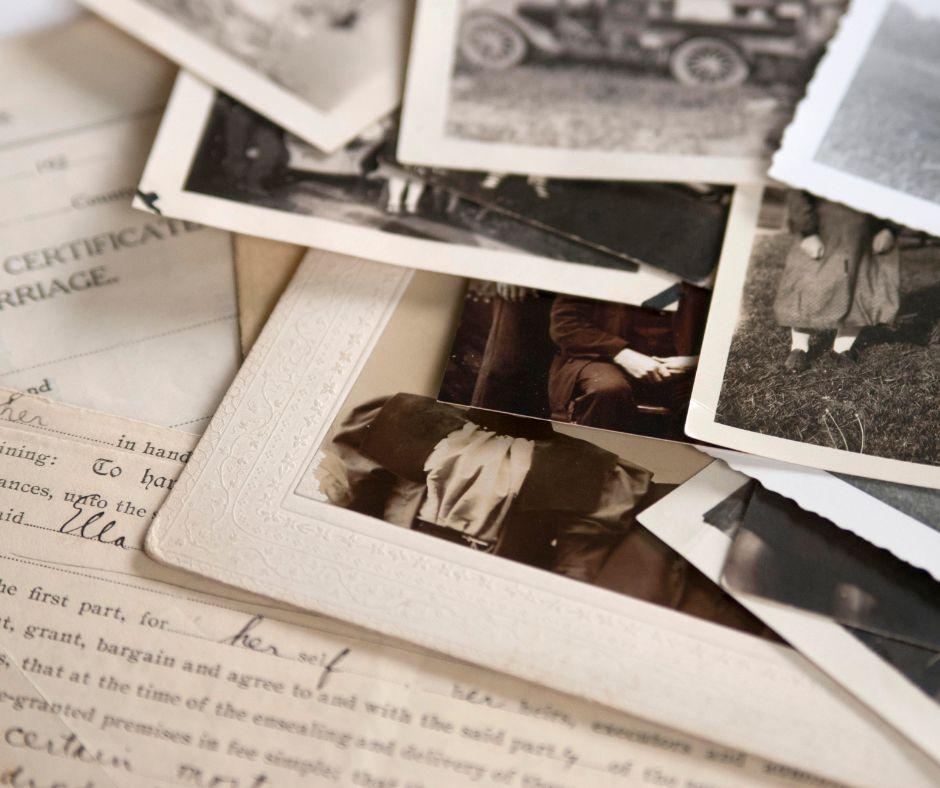(An excerpt from “Fatherhood: The Role of a Lifetime“).
My paternal grandfather, Neldon Williams, began working in the coal mines of central Utah at the young age of fourteen when his father passed away.
With only a widow’s pension of $7.50 a month to support my great-grandmother and her seven children, it became my grandfather’s responsibility as the oldest son to drop out of school and help provide for the family.
Within a few years, he met my grandmother, Amelia Waterfield. Born in Leigh, Lancashire, England, she immigrated to the United States at the age of four with her grandparents and younger brother. Her father, my great-grandfather Samuel Waterfield, took his family to Utah to do what he had done in England, mine coal.
At the age of 19, my grandparents met and soon married.

Coal mining was a nomadic life. Each mining company established and built an entire town or camp at or near the base of the new mine.
These miners and their families lived in these company-owned coal camps, rented company-owned houses, and shopped at the company-owned store where their purchases, often at inflated prices, were deducted from their pay.
Once tapped out, they closed the mine, tore down the town, and moved on to the next location.
And so, my grandparents moved from coal town to coal town and had four children in five years with three of the four born in different Carbon County coal mining towns.
The only outlier of the four was my Uncle Bert who entered this world via Vernal, Utah where my grandfather was trying his hand at sheep herding. He also played semi-pro baseball and owned a hot dog shop with his brother-in-law Asa where my crafty grandmother and my Dad’s Aunt Clarissa bored a hole through the wall to make sure their entrepreneur husbands weren’t doing too much flirting in order to boost sales.
A few years later they gave up sheep and hot dogs and left Vernal for the coal-mining town of Heiner, back to the salt mines, if you will. It was here where, in 1932, my dad, Duane Williams, was born. A few years later they moved about forty miles down the highway to Castle Dale, a small town of eight hundred in the central Utah county of Emery, where my dad grew up.
My Dad loved Castle Dale. Throughout his life, he told stories of riding horses in the summer, sledding down snow-laden streets and hills in the winter, and sitting in the back of the car with his younger brother Burnell watching my grandparents dance at the town’s tennis courts every Saturday night.
When he was twelve years old, he went to work on a neighboring farm and rewarded himself each payday by making weekly pilgrimages to Hunter’s Drug Store, where he sat at the soda fountain counter and threw back chocolate malts.
My grandparents never had much and their lives were not easy but they loved greatly. In this atmosphere, my Dad and his siblings learned how to love, how to be close, and how to work.
From Castle Dale he would go on to Utah State University and then the University of Utah to receive a bachelor’s degree. After securing a job with Utah Power and Light, he felt the prompting to go on a mission for The Church of Jesus Christ of Latter-day Saints and spent two and a half years in Uruguay.
In August of 2020, my dad’s last sibling, my Uncle Burnell, passed away.
As Uncle Burnell began to face what would be his last few weeks of mortality, my dad began to feel the loneliness of being the “last one left.” He and his brother, both much younger than their older siblings, had always been close. They had shared a bedroom, date money, and life’s experiences and the pending separation weighed heavy.
Having lost my mom only two years before, Dad was experiencing the loss of many from his generation. And yet my dad just kept going.
After my mom passed away, he kept living; he cooked, cleaned, bought new Christmas decorations, and kept us close. Once a month he would gather us for “Family Night” and when COVID hit, he simply moved to Zoom.
As he continued every family tradition and holiday, he kept things level for my siblings, myself, and our families. He remained the constant he had always been. His temple service and attention to others continued unwaveringly and he kept an extra overcoat in the back of his car—just in case he came across someone homeless who needed warmth.
That warmth was one of his greatest traits as everyone he encountered felt his love and genuine concern.
Six months after his brother’s passing, my dad called me and said he felt like he should find the grave of his sister, Violet Agnes Williams.
Born on November 23, 1923, Violet lived for only a few hours.

When my grandparents could not afford a headstone, they did the best they could and, with heavy hearts, buried Violet in an unmarked grave in Price, Utah.
With one phone call, our quest of “finding Violet” began.
I called the Price Cemetery who researched the many records of infant deaths in the 1920s and finally helped me locate where she was.
A few weeks later, in April of 2021, my siblings and I drove to Price with Dad and, with the help of a map, walked right to Violet’s resting place.
As I watched him stare at the small plot of ground, the look on his face made me wonder if he had just competed the last item the Lord had for him to do. The Williams Family had always shared a closeness quite unusual for an extended family and he had felt an urgency to find Violet.
We left the cemetery, drove to a local monument business, and began the process of ordering a headstone for the aunt we had never known.
Violet had been found.
Less than six weeks after gazing upon Violet’s grave, my fit-as-a- fiddle, 88-year-old dad suffered a ruptured aorta that blessed him with an immediate trip through the veil, greeted no doubt by Violet my Mom, and the rest of his loving family.
For my siblings and I, the time had come for us to forge on without our earthly parents.
Over the past year, I have spent a great deal of time thinking about my dad and the legacy he left.
While he did not possess vast worldly wealth, he left a storehouse of memories and experiences that continue to strengthen our families.
His life pursuits were never focused on his career or material possessions. My father’s energies and time were devoted to the Lord and to his family.
Despite serving in the Church throughout his life, he never missed a ball game, a concert, a performance, a play, or a vacation that involved his children and grandchildren. We never doubted his priorities.
His was a perspective of what mattered most and those whom he served and interacted with never doubted his sincere love for them and interest in them. The legacy he built for us and the lessons we learned from him carry us to this day.
When I became a father, my goal was to do what my own father had done and what his father, and his father, and his father had done.
Each one had built and left a legacy that was strong enough for their descendants to stand upon.

I thought— if I can come close to doing the same—I would leave a meaningful contribution that would go beyond this life. Because, as my dad always taught, the best focus was the one that looked beyond this life and into the eternities.
Such was the inspiration for this book—a collection of lessons with messages rich enough to help us see beyond what the world tries to offer.
Thankfully, I had the chance to share many of these chapters with my dad before he left.
And while the world today is vastly different and more challenging than the one I or my father and grandfathers lived in, messages that focus on the importance of love, the value of family, and the worth of a soul do not change from generation to generation.
Character has always mattered, and it always will because that is what truly builds and defines the individual and shapes and changes the world.
When I consider with earthly eyes how different the world of today is from the one I grew up in, it can be intimidating.
The pace of change comes so fast and furiously and the distances between generational change seem to be shrinking. Even the short gap of five years between our third and fourth children created different issues and challenges in raising what we have often referred to as our first batch of children and our second.
The effects of cell phones, video games, pornography, and shifting opinions on morality and sexuality can appear daunting.
And yet the basics of human nature are the same and the hopes and excitement of youth continue from one generation to the next.
We understand more than we think and the guidance of the Lord who does know all is the greatest assurance of all. We are up to the task of fatherhood.
It is also important to understand that having a loving, engaged father of our own is not a prerequisite to our being one.
We all come to this life with a character and strength designed to enable us to overcome rough starts. Each of us can access that power through prayer to know how to bless our children’s lives.
The void of my parents will never be filled until I see them again. However, their legacy lives on because of what they taught, what they focused on, and how they lived. Theirs truly was the richer, fuller, deeper life with joyous memories that bring a smile to my face each day.
On a recent Sunday, during a lesson on being Christlike, I opened my scriptures to a page where I had placed my dad’s funeral program.
There, staring at me from the pages, was his picture. Taken in the latter years of his life, his face wore the soft, kind smile it always had, the love in his eyes, and the wisdom borne of a lifetime of service.
His face glowed with what Alma referred to as having “the image of God engraven upon” his countenance. It was a very familiar look for he always wore the banner of discipleship. Completely devoted to the Lord and to his family, he was a master of knowing and living what mattered most.
My great hope is that, in some future day, my children will be able to say the same of me.
Read more stories and learn valuable lessons from the book Fatherhood: The Role of a Lifetime.

